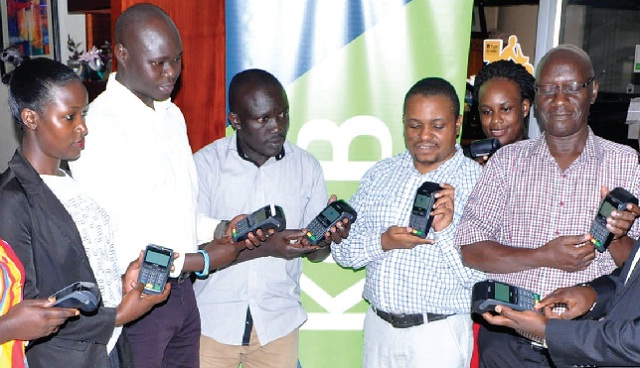
The new banking model is expected to deepen financial inclusion
Kampala, Uganda | ISAAC KHISA | Uganda’s commercial banks have started rolling out agent banking following Kenya and Rwanda’s footsteps in an effort to grow deposits and customer base.
This follows the coming into force of the Financial Institutions Act amendments of 2016 that gave the Bank of Uganda powers in consultation with the Minister of Finance to make regulations in respect of agents and agent banking.
Agent banking model works in such a way that a commercial bank appoints a third party (agent) to transact business on its behalf instead of visiting a nearby ATM or branch. The agent could be a petrol station, retail or hardware shop, a supermarket, pharmacy, and consumer goods distributors.
Currently, Equity Bank and Centenary Bank have already rolled out agent banking as a pilot with 1,000 and 392, agents respectively.
Stanbic Bank, which has so far signed an excess of 400 agents, plans to roll out the new banking model next month while KCB plans to follow suit in the second quarter of the year.
KCB has about 300 agents countrywide, according to the lender’s Marketing and Communication Manager, Samuel Matekha.
Speaking to The Independent in an interview, Fabian Kasi, the managing director at Centenary Bank, who also doubles as chairman of Uganda Bankers Association (UBA), said the new banking model is expected to boost the number of people consuming banking services.
“Also, our informal and agricultural sectors form the backbone of our economy,” he said, “By innovatively riding on technology; banks will be able to offer relevant services to players in this space which we envisage will lead to a totally new customer segment within the financial sector.”
At the moment, Uganda has merely eight million bank accounts out of the country’s 34.5million people, according to the World Bank.
Kasi revealed that Centenary Bank is looking at growing its agent network to 10,000 in the next three years.
Though BoU was yet to respond to our inquiries on the total number of banks that have been issued with licences to operate agent banking, executives in the Bank earlier stated that the new banking model will stimulate financial inclusion and deepen the financial sector as customers will now be able to deposit, withdraw and carryout any other transactions through the bank agents.
Beyond Uganda
In the East African Community, Kenya and Rwanda have already rolled out agent banking model. Data from Central Bank of Kenya shows that agent banking that was started in 2010 with the main objective being improving financial inclusion witnessed a rise of 56 million transactions in the first-quarter of 2016 compared to 10 million transactions noted in the same period in 2015.
The value of banking transactions undertaken through agents almost tripled from Ksh 65.0 billion to Ksh176.7 billion over the same period.
The bank attributed the good jump in numbers to increased confidence and acceptability of the banking model by banks and the public as an economical, convenient delivery channel of financial services.
As at the end of Q1 of 2016, there were 17 banks out of the country’s 43 commercial banks in the country that had contracted 40,224 agents which had facilitated over 170.5 million cumulative transactions valued at Ksh930.2 billion as compared to 16 commercial banks that had 34,381 agents that had facilitated 149.4 million transactions valued at Ksh817.7 billion in the same quarter the previous year.
In Rwanda, four of the eight banks – KCB, Equity, Bank of Kigali and Cogenbanque – that rolled out agent banking since 2012 had signed more than 3,544 agents as at the end of 2015, according to the study conducted by Jomo Kenyatta University of Science and Technology, with Equity Bank alone having signed 1,746 banking agents.
More than 66.35milllion Rwanda Francs passed through the four banks’ agents during the same period under review, signalling increased financial performance due to convenience and efficiency.
Analysts say Kenya and Rwanda’s success story offer an opportunity for the 24 Ugandan Banks to learn and design product in a way that it achieves its core purpose in the banking space.
Going forward, Kasi said with the rollout of its agent banking which comes with cash deposits and withdrawals, account opening initiation, school fees payment, cente voucher and inquiries services, it now plans to add more services onto this new banking channel.
This includes utility payments like Umeme, Uganda Revenue Authority, pay TVs, National Water and Sewerage Corporation and all other relevant services to this new platform for its customers and society, he said.
 The Independent Uganda: You get the Truth we Pay the Price
The Independent Uganda: You get the Truth we Pay the Price


